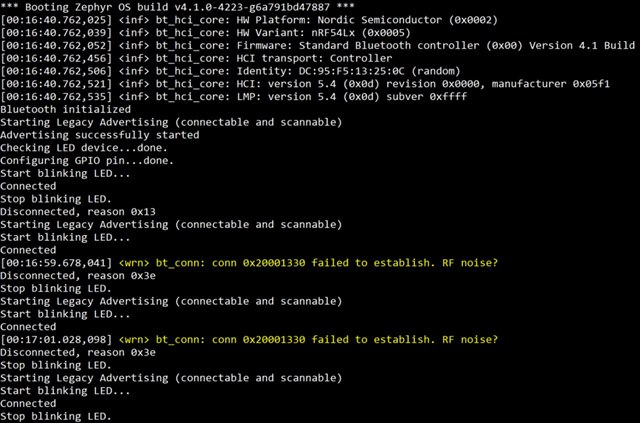Dear All,
In our company, we have replaced the NRF52811 (ublox module) with NRF54L15 (raytac module) for new batches of products.
The fw is a simple BLE to UART bridge with Zephyr.
We noticed something curious: when connecting to it, we often (I would say on average 3 times out of 10) receive the error "bt_conn: con 0x20001330 failed to establish. RF noise?"
We had thought it could be a problem related to the fw, but:
- trying to connect from mobile, either IOS or Android, it never happens
- trying from Mac, it never happens
but from different windows systems (10 and 11) the problem is reproducible, quite easily (Using a simple connection with LE Explorer or Web Bluetooth from Chrome).
In order to try excluding a problem specific to our fw, we used the sample peripheral_hr available in zephyr and we observed the same behaviour as described above.
In order to avoid a problem specific to our board, we used our fw on the NRF54L15DK eval board with the same symptoms.
Has anyone faced such issues?
Best,
Dairlab



